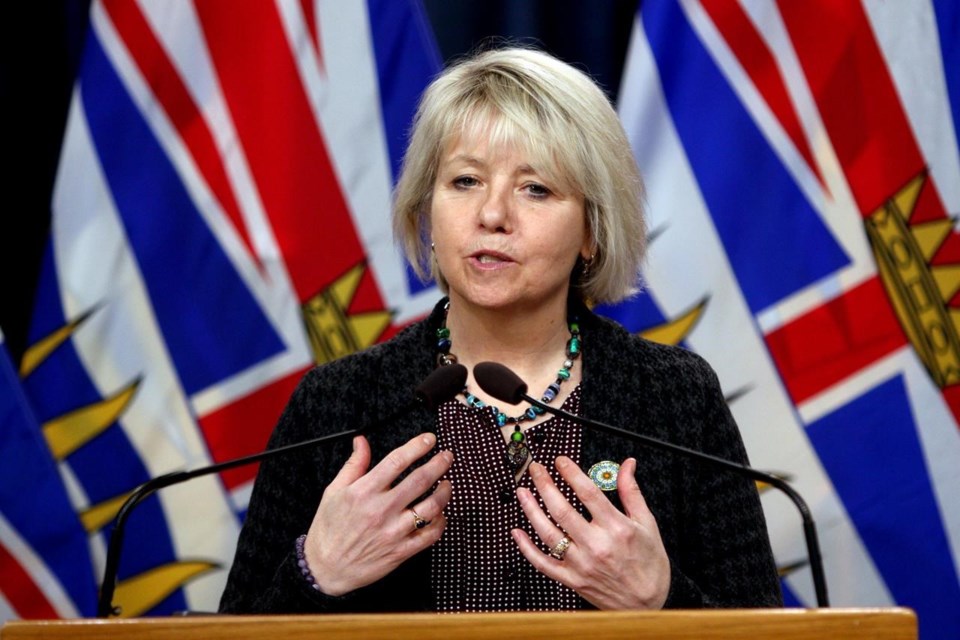VICTORIA — British Columbia's top doctor says masks should be worn in crowded public places, the same as the recommendation by her counterpart in Quebec, which, like elsewhere in Canada, is facing the threat of a "spicy cocktail"of respiratory viruses.
Dr. Bonnie Henry said Wednesday that health-care settings and crowded buses are examples of places where it makes sense to wear a mask, but schools are not high-transmission environments, so masks are not needed there.
It's hard to tell the difference between various respiratory illnesses that are circulating because symptoms can be similar, so people should wear a mask even at home if they're sick to protect children or others who are vulnerable, she said.
Quebec public health director Dr. Luc Boileau also stopped short of recommending masks in schools and daycares.
A mask mandate was off the table for both Henry and Boileau.
Henry said 90 per cent of people in B.C. have some immunity to COVID-19 through vaccination, infection or both, and cases of the virus have declined, along with hospitalizations, even among elderly people over 80, who are most vulnerable, Henry said.
“I do not believe we need the heavy hand of a mandate to send a clear message that masks are an important tool that we can all use during this time and in every respiratory season. We should have one with us, we should use it in situations where it makes sense," she said.
Quebec's College of Physicians has also urged people to wear masks in public as well as crowded private spaces and transit, but on a "voluntary and preventive basis."
Henry said that while COVID-19 cases are down, vaccine-preventable influenza cases are rising in B.C., potentially putting a strain on the health-care system even as officials take steps to increase capacity in some overwhelmed emergency rooms and elsewhere in hospitals.
In contrast, Boileau warned that the province's health-care system is dealing with a "predictable rise" in COVID-19, while influenza and respiratory syncytial virus, or RSV, are creating a"spicy cocktail of viruses in the next weeks, if not the next months."
He said RSV accounts for a significant percentage of pediatric hospitalizations and while the start of flu season in Quebec is lagging behind provinces like Ontario, cases will almost certainly spike based on data from other countries.
Henry said masks were necessary during last year's respiratory season when a vaccine for children was not available, hospitalizations were up and some health-care workers were off the job due to illness.
Precautions like washing hands and staying home when sick will be all the more important as people start to gather during the holidays and that will be the case every year during the respiratory season, she said.
Saskatchewan Health Minister Paul Merriman has also rejected the idea of mask mandates, saying that should be an individual decision.
The Edmonton public school board has asked that province's health and education ministries whether it can require masks as schools deal with viral illnesses.
Education Minister Adriana LaGrange said she will take advice from the province's new chief medical health officer.
In Ontario, chief medical health officer Dr. Kieran Moore has strongly recommended residents wear masks in indoor public settings to protect children during the respiratory season.
This report by The Canadian Press was first published Nov. 16, 2022.
— By Camille Bains in Vancouver
The Canadian Press



